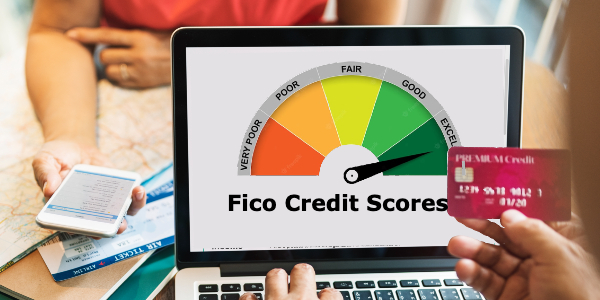Managing your credit has become more critical in today's digital age. From obtaining loans and credit cards to renting an apartment or buying a car, your credit score plays a vital role in your financial well-being. Traditionally, the FICO score has been the standard measure of creditworthiness.
However, with the advent of new technologies and financial tools, there are now a variety of approaches to managing your credit and achieving financial wellness.
First, it is essential to understand the FICO score and how it is calculated. The FICO score is a credit score developed by Fair Isaac Corporation, which ranges from 300 to 850. It is based on several factors, including payment history, credit utilization, length of credit history, types of credit used, and recent credit inquiries. A higher score indicates better creditworthiness, while a lower score suggests a higher risk of default.
While the FICO score remains a widely recognized measure of creditworthiness, it is not the only factor lenders consider. Alternative credit scoring models, such as VantageScore, are gaining popularity, particularly among fintech companies. VantageScore takes a slightly different approach to calculating credit scores, emphasizing payment history more and less on recent credit inquiries.
Apart from these, there are other new approaches to managing your credit in the digital age, and here are a few of them.
Using Different Data Sources
Using non-traditional sources of data to evaluate a borrower's creditworthiness is known as leveraging alternative data sources for credit management. Taking a look at a borrower's social media profiles, for instance, can help you comprehend their way of life.
Using this strategy, the client base is increased, better lending decisions are made, and default rates are decreased. Yet, there are issues with data security and privacy and the possibility of prejudice and discrimination.
Using alternate data sources for credit management can increase access to credit and give a more realistic picture of a borrower's financial status despite any potential disadvantages. The possible risks and rewards must be weighed by the lenders, who must also take steps to eliminate any prejudices or privacy concerns.
Taking Advantage of Machine Learning and AI for Predictive Modeling
James Scott, Founder of Embassy Row Project, says,
"We work with a lot of tech startups at our accelerators, and we're constantly exploring novel approaches to credit management that can optimize financial performance while minimizing risk. One emerging promising trend is using machine learning and AI to develop predictive models for credit risk assessment.
The benefits of this approach include greater accuracy in predicting creditworthiness, faster decision-making, and improved customer experience. However, potential drawbacks include the need for significant investment in data infrastructure.”
Checking Changes in Credit Score Regularly
Credit reporting organizations have recently come under fire for providing conflicting credit records upon request. To manage your credit, regularly check your score and notify anyone of any issues you notice, including a sharp decline.
This strategy aids in ensuring that reports are accurate at all times. On the other hand, lenders may regard you as unsafe if you regularly check, which could damage your score.
Finally, a growing emphasis on financial wellness encompasses credit management and overall financial health. Employers, for example, are increasingly offering financial wellness programs to their employees, which may include education on budgeting, saving, and investing. There are also a variety of nonprofit organizations, such as the National Foundation for Credit Counseling, that offer free financial counseling and education to individuals and families.
Conclusion
Managing your credit and achieving financial wellness is crucial in today's digital age. While the FICO score remains a widely recognized measure of creditworthiness, there are now a variety of alternative credit scoring models and fintech tools that can help consumers manage their credit and achieve their financial goals.
Moreover, the use of artificial intelligence and machine learning algorithms has the potential to expand access to credit for underserved populations. Ultimately, the emphasis on financial wellness highlights the importance of a holistic approach to managing your finances and achieving long-term financial health.









